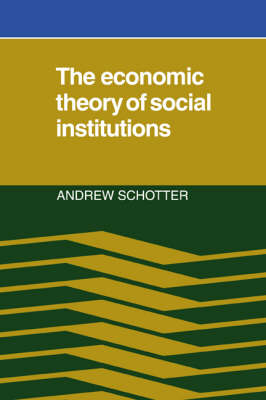This book uses game theory to analyse the creation, evolution and function of economic and social institutions. The author illustrates his analysis by describing the organic or unplanned evolution of institutions such as the conventions of war, the use of money, property rights and oligopolistic pricing conventions. Professor Schotter begins by linking his work with the ideas of the philosophers Rawls, Nozick and Lewis. Institutions are regarded as regularities in the behaviour of social agents, which the agents themselves tacitly create to solve a wide variety of recurrent problems. The repetitive nature of the problems permits them to be described as a recurrent game or 'supergame.' The agents use these regularities as informational devices to supplement the information contained in competitive prices. The final chapter explores the applicability of this theory, first by relating it to previous work on the theory of teams, hierarchies, and non-maximizing decision theory, and then by using it to provide a new approach to a variety of questions both within and outside economics.
- ISBN13 9780521067133
- Publish Date 26 June 2008 (first published 31 March 1981)
- Publish Status Active
- Publish Country GB
- Imprint Cambridge University Press
- Format Paperback (US Trade)
- Pages 192
- Language English
